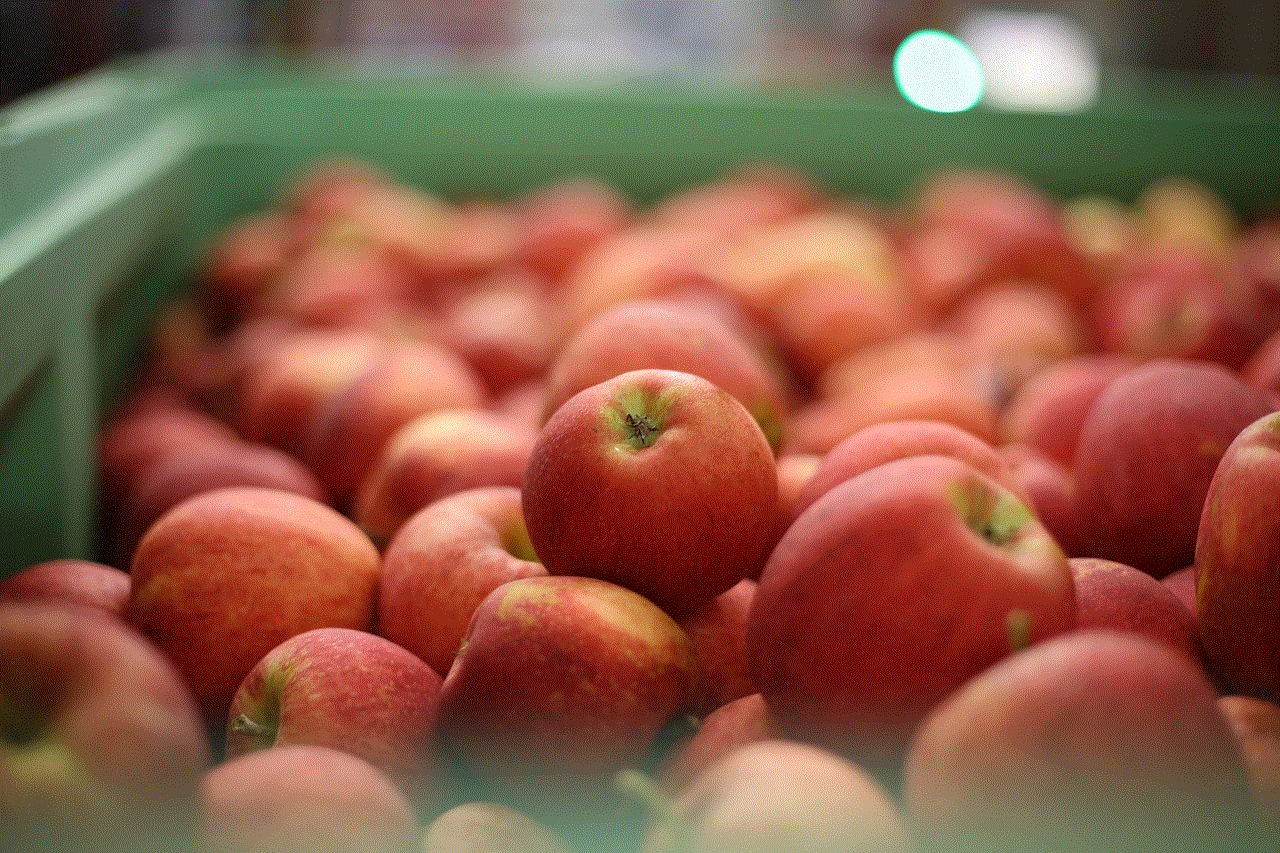free spy phone app
In today’s digital age, smartphones have become an integral part of our lives. We use them for communication, entertainment, and even for work. However, with the rise of technology, concerns about privacy and security have also increased. This is where spy phone apps come into play. These apps allow users to monitor the activities of another person’s phone remotely. While they may have been initially developed for parents to keep an eye on their children, they are now being used by employers and even by individuals to spy on their partners. In this article, we will discuss the concept of spy phone apps, their pros and cons, and the ethical implications surrounding them.
Spy phone apps, also known as spyware, are software that can be installed on a smartphone to monitor its activities. Once installed, these apps can track the phone’s location, call logs, text messages, social media activity, and even record phone calls and take screenshots. They can also access the phone’s camera and microphone, giving the user a complete view of the phone’s usage. While some of these apps require physical access to the target phone for installation, others can be installed remotely through a link or email. This makes it easier for someone to spy on another person’s phone discreetly.
One of the main reasons why people use spy phone apps is to keep an eye on their children’s online activities. With the rise of cyberbullying and online predators, parents are understandably concerned about their children’s safety. By installing a spy phone app on their child’s phone, they can monitor their social media interactions and ensure they are not engaging in any risky behavior. Some parents also use these apps to track their child’s location, especially if they are worried about their whereabouts.
Another common use of spy phone apps is by employers to monitor their employees’ company-issued devices. This is especially prevalent in industries where sensitive information is shared, such as finance and healthcare. By installing a spy app on their employee’s phone, employers can keep track of their online activities and ensure they are not engaging in any malicious or illegal behavior. They can also monitor their location to ensure they are not disclosing sensitive information to competitors.
However, the use of spy phone apps also raises ethical concerns. While they may be beneficial for parents and employers, they can also be misused. For instance, a partner may install a spy app on their significant other’s phone without their knowledge or consent. This not only violates the individual’s privacy but also erodes trust in the relationship. Moreover, these apps can also be used to stalk and harass someone, which is a serious offense. Therefore, it is essential to use these apps ethically and with the consent of the person being monitored.
Apart from ethical concerns, there are also legal implications of using spy phone apps. In most countries, it is illegal to install a spy app on someone’s phone without their permission. This can result in severe penalties, including fines and imprisonment. Therefore, it is crucial to check your country’s laws before using a spy app. In some cases, employers may also be required to inform their employees about the use of spy apps on their devices. Failure to do so can result in legal consequences.
While spy phone apps may seem like a useful tool for monitoring children and employees, they also come with certain drawbacks. First and foremost, these apps can be expensive, with some costing hundreds of dollars a year. Moreover, they may also require a monthly subscription fee, which can add up over time. Additionally, these apps can drain the phone’s battery and slow down its performance, which can be frustrating for the user. Furthermore, depending on the app’s features, it may also require a stable internet connection, which can be a challenge in some areas.
Another major concern with spy phone apps is the vulnerability of the data they collect. Since these apps have access to sensitive information, they can be a goldmine for hackers. If the app’s security is compromised, it can result in a data breach, exposing the user’s personal information. This can have severe consequences, especially if the data falls into the wrong hands. Moreover, some spy apps may also sell the data they collect to third-party companies, which can be a breach of privacy.
In conclusion, spy phone apps have become a popular tool for monitoring someone’s phone activities. While they can be beneficial for parents and employers, they also raise ethical and legal concerns. It is crucial to use these apps with caution and with the consent of the person being monitored. Moreover, it is essential to ensure the app’s security to prevent any data breaches. As technology continues to advance, it is important to have a conversation about the responsible use of spy phone apps to protect our privacy and security.
tighter than a
Tight is a word that can convey a variety of meanings, depending on the context in which it is used. It can refer to something that is constricted or closely packed, or it can also convey a feeling of tension or restriction. However, when combined with the phrase “tighter than a,” it takes on a whole new level of intensity. This colloquialism is often used to describe something that is extremely constricted or restricted, to the point that it is almost unbearable. In this article, we will delve into the meaning and origins of the phrase “tighter than a,” and explore some of the common ways in which it is used in everyday language.
The phrase “tighter than a” is believed to have originated in the southern United States, where it is still commonly used today. It is often used to describe something that is extremely constricted or cramped. For example, one might say, “I can’t move in this outfit, it’s tighter than a tick on a dog.” This phrase is typically used in a humorous or exaggerated way, but it can also be used to convey a feeling of discomfort or even frustration.
One of the most common ways in which this phrase is used is to describe clothing that is too tight. This could be anything from a pair of jeans that are a size too small, to a dress that is so tight that it restricts movement. In these situations, the phrase is often used to express the discomfort or inconvenience of wearing something that is too tight. For example, someone might say, “These shoes are tighter than a snake’s skin,” to convey the feeling of having their feet constricted in tight shoes.
But the phrase is not limited to just clothing. It can also be used to describe any situation or object that is uncomfortably constricted or confined. For instance, one might say, “I can’t fit all my clothes in this suitcase, it’s tighter than a sardine can.” This comparison highlights the feeling of being restricted and cramped in a small space, much like sardines packed tightly in a can.



The phrase is also commonly used to describe situations that are difficult or challenging. For example, someone might say, “This job is tighter than a drum,” to convey the level of pressure and stress they are experiencing in their work. This comparison to a tightly stretched drum emphasizes the tension and pressure of the situation.
In addition to being used in everyday language, the phrase “tighter than a” has also made its way into popular culture. It has been used in song lyrics, TV shows, and movies, often to add humor or emphasis to a situation. For instance, in the song “Rocky Top” by The Osborne Brothers, the lyrics include the line, “Corn won’t grow at all on Rocky Top, dirt’s too rocky by far. That’s why all the folks on Rocky Top, get their corn from a jar. Tighter than a country hamskin, they get a little better in the jug.” This use of the phrase adds a touch of humor to the song, while also emphasizing the difficulty of growing crops on rocky terrain.
Similarly, in the popular TV show Friends, the character Joey Tribbiani uses the phrase in an episode where the group is trying to squeeze into a small car. Joey exclaims, “I can’t do this, it’s tighter than my jeans after Thanksgiving dinner!” This use of the phrase adds humor to the scene, while also highlighting the difficulty of fitting into a small space.
Another popular use of the phrase can be found in the movie The Shawshank Redemption. In one scene, the character Red is describing the tightness of his prison cell. He says, “I have to remind myself that some birds aren’t meant to be caged. Their feathers are just too bright. And when they fly away, the part of you that knows it was a sin to lock them up does rejoice. But still, the place you live in is that much more drab and empty that they’re gone. I guess I just miss my friend. Tighter than a nun’s asshole, I tell ya.” In this instance, the phrase is used to convey the extreme confinement and restriction of being in prison.
While the phrase “tighter than a” is most commonly used to describe something that is constricted or restricted, it can also be used in a positive way. For example, someone might say, “This friendship is tighter than a family bond,” to express the strength and closeness of their relationship. This use of the phrase highlights the idea that something can be tightly bound without being uncomfortable or restrictive.
In conclusion, the phrase “tighter than a” is a colloquialism that is commonly used to describe something that is extremely constricted or restricted. It can be used in a humorous or exaggerated way, as well as to convey a feeling of discomfort or frustration. This phrase has become ingrained in popular culture and is often used to add humor or emphasis to a situation. So the next time you hear someone say, “tighter than a,” you will know that they are describing something that is extremely tight and constricted.
snack urban dictionary
Snacks have become an essential part of modern urban life. From quick bites on-the-go to indulgent treats during break time, snacks have become a staple in our daily routines. But what exactly is a snack? According to the Oxford Dictionary, a snack is “a small amount of food eaten between meals”. However, to truly understand the concept of a snack in an urban setting, we turn to the ultimate source of modern language – the Urban Dictionary.
So, what does the Urban Dictionary have to say about snacks? Upon searching, we come across the term “snack” which is described as “someone who is looking good at the moment”. This definition is a prime example of how urban language has evolved to incorporate slang terms and phrases into everyday vocabulary. In this article, we will delve deeper into the world of snacks and explore the various meanings and connotations associated with this term in an urban setting.



Snacks have been around for centuries, with the concept of a quick and easy bite to eat being a common practice in many cultures. However, it wasn’t until the rise of urbanization that snacks became an integral part of our daily lives. With the fast-paced nature of city life, people needed something quick and convenient to keep them going throughout the day. This is where the idea of a snack truly came into play.
In an urban setting, snacks are not just about satisfying hunger. They have also become a form of self-expression and a way to showcase one’s individuality. This is evident in the way the term “snack” is used in the Urban Dictionary, where it is often associated with someone’s appearance or attractiveness. In an urban environment, snacks are not just about taste, but also about presentation.
Moreover, snacks have also become a way for people to connect and socialize. In urban areas, where people are constantly on the move, grabbing a snack with a friend or colleague has become a popular way to catch up and bond. This is reflected in the phrase “let’s grab a snack” which has become a common invitation among urban dwellers. Snacks have become a form of social lubricant, bringing people together in a fast-paced and often isolating environment.
But snacks in an urban setting are not just limited to food. The term has also been used to describe other forms of indulgence, such as fashion and pop culture. For example, a “fashion snack” refers to someone who is always dressed to impress, while a “pop culture snack” refers to someone who is up-to-date with the latest trends and events. In this context, snacks are not just about sustenance, but also about status and keeping up with the ever-changing urban landscape.
In the world of dating, snacks have also taken on a whole new meaning. In the Urban Dictionary, a “snack” can also refer to someone who is a potential partner or love interest. This term is often used in the phrase “he/she is a whole snack” which means the person is attractive and desirable. This further highlights the connection between snacks and attractiveness in an urban context.
In recent years, the term “snack culture” has emerged, referring to the phenomenon of snacking becoming a lifestyle in itself. With the rise of convenience stores and food delivery services, urban dwellers now have access to a variety of snacks at any time of the day. This has led to a culture of snacking, where people are constantly munching on something, whether it be a bag of chips or a protein bar. Snack culture has also become a way for people to explore and experiment with different flavors and cuisines, adding to the diversity of urban life.
However, with the rise of snack culture, there has also been a shift towards healthier snacking options. In an urban setting where people are becoming more health-conscious, snacks are no longer just about indulgence, but also about nourishment. This has led to the emergence of healthier snack options such as granola bars, vegetable chips, and fruit smoothies. In the Urban Dictionary, the term “snack pack” is often used to refer to a healthy assortment of snacks, showcasing the growing trend of incorporating health into snacking.
But snacking in an urban setting is not without its controversies. With the rise of convenience and accessibility, there has also been a rise in snacking on processed and unhealthy foods. This has led to concerns about the impact of snacking on overall health and well-being, particularly in urban areas where sedentary lifestyles are prevalent. This has sparked debates about the need for regulations and education on healthy snacking habits in an urban setting.



In conclusion, snacks have become an integral part of modern urban life, shaping the way we eat, socialize, and even date. In the Urban Dictionary, snacks are not just about food, but also about appearance, status, and lifestyle. They have become a way for urban dwellers to express themselves, connect with others, and navigate the fast-paced environment in which they live. With the constant evolution of urban language and culture, it is safe to say that the definition of “snack” will continue to evolve and adapt to the ever-changing urban landscape. So next time you grab a quick bite between meals, remember the multifaceted nature of this seemingly simple term in an urban dictionary.
